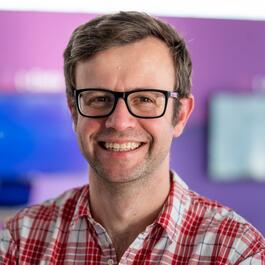
124: Richard Shotton on personality, context, and behavior
In this week's episode of “Marketing Today,” Alan talks with Richard Shotton, author of the book, “The Choice Factory: 25 Behavioural Biases That Influence What We Buy,” which was published earlier this year. Shotton started in advertising as a media planner, working on brands such as Coke and Lexus, before becoming inspired by the idea of applying behavioral psychology to business problems. Presently, he is head of behavioural science at Manning Gottleib OMD. In addition, he recently founded the consultancy, Astroten. During his conversation with Alan, Shotton outlines the thinking and methodology that went into writing his book. And he discusses just how much he relishes the freedom to conduct his own experiments to bear out his hypotheses. “What I have most loved is the freedom to go out and run a test to prove a point,' says Shotton, “not to have to rely on other people's findings. It's so easy to set up a psychological experiment. I find that really exciting and liberating — starting a project, not knowing if it's going to work or not, and then generally finding an interesting insight at the end that you can apply. I think that's what I find most exciting about the job.” Highlights from this week's “Marketing Today” podcast include:Shotton talks about why he wrote “The Choice Factory,” and how his fascination with people's motivations led to his career path. (1:17)Shotton discusses how he chose the 25 behavioral biases most relevant to advertising for his book. (9:15)“People or products that exhibit a flaw become more appealing.” — Shotton on his favorite bias: The Pratfall Effect. (11:48)Shotton outlines two key elements of the Fundamental Attribution Error. (14:23)The Negative Social Proof. (19:00)Our expectations influence how we feel about what we experience: Shotton explains the Expectancy Theory. (23:47)In examining consumer behavior, Shotton was surprised to learn people are much more likely to make major life decisions when their age ends in the number 9. ‘9-enders,' they're called. (27:57)Shotton is drawn to “creative minds in action,” be they academics, authors, creatives, or people he follows on Twitter. (31:47)Shotton: “I think marketers massively overestimate how much people genuinely change.” (32:53) Hosted on Acast. See acast.com/privacy for more information.
From "Marketing Today with Alan Hart"




Comments
Add comment Feedback